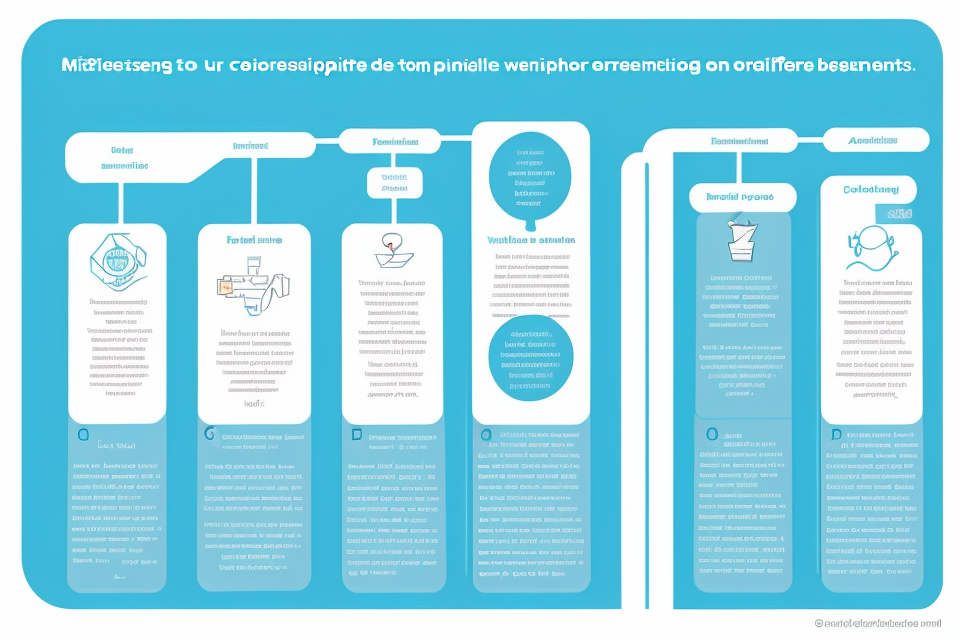
Compatibility, the holy grail of relationships, is often touted as the key to a successful partnership. But what does it really mean to be compatible? At its core, compatibility is about finding someone who understands and accepts you for who you are, and who you feel the same way about in return. It’s about sharing common values, goals, and interests, and being able to communicate effectively and navigate life’s ups and downs together. When two people are compatible, they are able to create a deep and meaningful connection that lasts a lifetime. So, if you’re wondering what compatibility means in relationships, it’s about finding your perfect match and building a strong foundation for a lifelong partnership.
Compatibility in relationships refers to the degree of suitability or harmony between two individuals in terms of their personalities, values, interests, and goals. It is a crucial aspect of any successful relationship, as it helps to ensure that both partners are on the same page and can work together towards common goals. Compatibility can be assessed through various means, such as communication, shared activities, and mutual interests. Ultimately, compatibility helps to build a strong foundation for a relationship, enabling partners to navigate life’s challenges together and maintain a sense of connection and mutual respect over time.
Defining Compatibility
Common Misconceptions
Compatibility is not the same as love
Compatibility and love are often used interchangeably, but they are not the same thing. Love is an emotional connection between two people, while compatibility refers to how well two people’s personalities, values, and lifestyles mesh together. Just because two people are in love does not mean they are compatible, and just because two people are compatible does not mean they are in love.
Compatibility is not a guarantee of a successful relationship
Another common misconception about compatibility is that it is a guarantee of a successful relationship. While compatibility can certainly increase the chances of a successful relationship, it is not a guarantee. There are many other factors that can impact the success of a relationship, such as communication, trust, and commitment. Even two highly compatible individuals can experience relationship challenges if they do not work on these other important aspects of their relationship.
Components of Compatibility
In the context of relationships, compatibility refers to the degree to which two individuals can successfully and harmoniously coexist. It is a crucial aspect of any romantic partnership, as it determines the ability of the couple to understand, respect, and support each other. The components of compatibility are numerous, but this section will focus on four key factors: shared values and beliefs, similar communication styles, compatible personalities, and aligning goals and aspirations.
- Shared values and beliefs: One of the most important components of compatibility is having shared values and beliefs. This means that both partners hold similar views on issues such as religion, morality, and social norms. When couples share common values, they are more likely to understand and respect each other’s perspectives, making it easier to navigate through life’s challenges together. Additionally, having similar beliefs creates a sense of security and stability in the relationship, which is crucial for long-term success.
- Similar communication styles: Effective communication is vital in any relationship, and compatibility in this area is crucial. Couples who communicate well are more likely to resolve conflicts and misunderstandings, and they can express their thoughts and feelings openly and honestly. Compatibility in communication style means that both partners are comfortable expressing themselves and can understand each other’s messages, even in difficult situations. When communication styles are compatible, partners can work together to overcome obstacles and build a strong foundation for their relationship.
- Compatible personalities: Another essential component of compatibility is having compatible personalities. This means that both partners have similar temperaments, attitudes, and behaviors. When personalities are compatible, couples are more likely to enjoy each other’s company, find common interests, and support each other’s goals and aspirations. Additionally, compatible personalities make it easier to navigate through stressful situations, as both partners can provide emotional support and understanding.
- Aligning goals and aspirations: Lastly, compatibility in relationships requires that both partners have similar goals and aspirations for their future. This includes plans for marriage, children, finances, and career. When couples share similar goals, they are more likely to work together as a team and support each other in achieving their objectives. Additionally, aligning goals and aspirations creates a sense of shared purpose, which is essential for long-term relationship success.
In conclusion, compatibility in relationships is a complex and multifaceted concept that involves several components. Shared values and beliefs, similar communication styles, compatible personalities, and aligning goals and aspirations are all crucial factors that contribute to the success of any romantic partnership. When couples are compatible in these areas, they are more likely to navigate through life’s challenges together, build a strong foundation for their relationship, and achieve their shared goals and aspirations.
The Importance of Compatibility
Building a Strong Foundation
Reducing conflict and misunderstandings
In any relationship, it is inevitable that conflicts and misunderstandings will arise. However, when compatibility exists between two individuals, they are better equipped to navigate these challenges. When partners share similar values, beliefs, and communication styles, they are more likely to understand each other’s perspectives and find common ground. This can lead to less frequent and more quickly resolved conflicts, which in turn can strengthen the relationship.
Enhancing trust and security
Trust and security are essential components of any healthy relationship. When partners are compatible, they are more likely to feel secure in their relationship, as they have a deeper understanding of each other’s needs, desires, and boundaries. Compatibility can also lead to greater trust, as partners are more likely to be honest and transparent with one another when they share similar values and communication styles. This honesty can foster a sense of safety and security in the relationship, which can help partners feel more confident in their commitment to one another.
Facilitating mutual support and understanding
When partners are compatible, they are more likely to support each other in their individual goals and aspirations. This is because they share similar values and priorities, and they understand each other’s needs and desires. When partners feel supported by one another, they are more likely to feel motivated and empowered to pursue their goals, which can lead to greater personal growth and satisfaction. Additionally, when partners are compatible, they are more likely to be able to offer each other understanding and support during difficult times, which can help them navigate challenges together more effectively.
Avoiding Relationship Pitfalls
Compatibility in relationships plays a crucial role in avoiding relationship pitfalls. Here are some of the ways in which compatibility can help:
Reducing the likelihood of infidelity
Infidelity is a major issue that can cause significant damage to a relationship. However, when two partners are compatible, they are more likely to have a strong emotional connection, which reduces the likelihood of one or both partners seeking emotional or physical intimacy outside the relationship. When partners are compatible, they are more likely to have similar values, goals, and interests, which creates a strong bond between them and makes it less likely for either partner to seek satisfaction elsewhere.
Minimizing the impact of disagreements
Disagreements are a natural part of any relationship, and even the most compatible couples will have their fair share of disagreements. However, when partners are compatible, they are more likely to have open and honest communication, which allows them to resolve conflicts in a healthy and productive manner. When partners are not compatible, disagreements can quickly escalate and cause significant damage to the relationship. Therefore, compatibility can help minimize the impact of disagreements and keep the relationship strong.
Avoiding toxic or abusive relationships
Toxic or abusive relationships can have serious consequences for both partners, and it is important to avoid such relationships at all costs. When partners are compatible, they are more likely to have a healthy and respectful relationship, which reduces the likelihood of toxicity or abuse. When partners are not compatible, they may have a tendency to control or manipulate each other, which can lead to toxic or abusive behavior. Therefore, compatibility can help partners avoid toxic or abusive relationships and build a healthy and positive relationship.
Assessing Compatibility
Self-Reflection
In order to assess compatibility in a relationship, it is important to engage in self-reflection. This involves taking a critical look at one’s own values, beliefs, communication styles, and personality traits. By doing so, individuals can gain a better understanding of their own needs and desires, as well as identify areas where they may be incompatible with their partner.
Identifying Personal Values and Beliefs
One aspect of self-reflection is identifying personal values and beliefs. These are the principles that guide an individual’s behavior and decision-making, and they can have a significant impact on compatibility in a relationship. For example, if one person values independence and autonomy, while the other values commitment and dependence, this could create tension and conflict in the relationship. Therefore, it is important to examine one’s own values and beliefs in order to determine whether they are compatible with those of one’s partner.
Assessing Personality Traits and Quirks
Finally, self-reflection involves assessing personality traits and quirks. Each individual has their own unique personality, which can impact their behavior and interactions with others. Some personality traits, such as being extroverted or introverted, can be more compatible with certain traits in a partner. Therefore, it is important to examine one’s own personality traits and quirks in order to determine whether they are compatible with those of one’s partner.
Overall, self-reflection is a crucial component of assessing compatibility in a relationship. By taking a critical look at one’s own values, beliefs, communication styles, and personality traits, individuals can gain a better understanding of their own needs and desires, as well as identify areas where they may be incompatible with their partner. This can help individuals make informed decisions about their relationships and increase the likelihood of long-term compatibility.
Open Communication
Effective communication is a vital aspect of any relationship, and it plays a crucial role in assessing compatibility. Open communication involves discussing expectations and goals, exploring differences and finding common ground, and sharing experiences and histories.
Discussing Expectations and Goals
One of the essential aspects of open communication is discussing expectations and goals. It is crucial to be honest and transparent about what you want from the relationship, including your needs, desires, and aspirations. By discussing these expectations, both partners can gain a better understanding of each other’s needs and find ways to meet them. It is also important to discuss long-term goals, such as career aspirations, financial goals, and plans for the future. This helps partners to determine whether they are on the same page and can work together towards achieving these goals.
Exploring Differences and Finding Common Ground
Open communication also involves exploring differences and finding common ground. Everyone has unique perspectives, experiences, and backgrounds, which can sometimes lead to differences in opinion or values. It is essential to engage in open and honest conversations about these differences to understand each other’s perspectives and find common ground. This can involve discussing values, beliefs, and lifestyle choices, as well as exploring shared interests and hobbies. By finding common ground, partners can build a strong foundation for their relationship and learn to appreciate each other’s differences.
Sharing Experiences and Histories
Finally, open communication involves sharing experiences and histories. It is essential to be open and honest about your past experiences, including previous relationships, traumas, and challenges. By sharing these experiences, partners can gain a better understanding of each other’s history and develop empathy and compassion. It is also an opportunity to discuss expectations for the future, including how past experiences may impact the relationship moving forward.
In conclusion, open communication is a critical aspect of assessing compatibility in relationships. By discussing expectations and goals, exploring differences and finding common ground, and sharing experiences and histories, partners can build a strong foundation for their relationship and ensure that they are on the same page. Effective communication is essential for building trust, respect, and understanding, which are all critical components of a healthy and compatible relationship.
Maintaining Compatibility
Fostering Growth and Change
Adapting to new situations and challenges
In any relationship, it is essential to be able to adapt to new situations and challenges that may arise. This can include changes in career, family dynamics, or even moving to a new location. Being able to adapt and support each other through these changes can help maintain compatibility and strengthen the relationship.
Encouraging personal development and growth
Encouraging personal development and growth is another important aspect of fostering compatibility in a relationship. This can include supporting each other’s goals and dreams, encouraging each other to try new things, and providing constructive feedback to help each other grow. By supporting each other’s personal growth, partners can help maintain compatibility and continue to grow together.
Supporting each other through life changes
Life changes can be difficult, and it is important to have a support system to help navigate these challenges. Whether it is a job loss, a move, or a major life event, being there for each other and supporting each other through these changes can help maintain compatibility and strengthen the relationship. By being a support system for each other, partners can help each other grow and maintain compatibility in their relationship.
Embracing Compatibility as a Journey
- Recognizing that compatibility is not static: In relationships, compatibility is not a fixed trait that remains constant throughout the relationship. Instead, it is a dynamic quality that changes over time. Couples must understand that compatibility is a journey that requires continuous effort and commitment to maintain.
- Continuously assessing and adjusting for changes: As individuals grow and change, their compatibility in a relationship also changes. It is essential to continuously assess and adjust to these changes to maintain compatibility. This can involve open communication, active listening, and seeking outside help when needed.
- Seeking outside help when needed: Seeking outside help from a therapist or counselor can be beneficial when working to maintain compatibility in a relationship. A trained professional can provide an objective perspective, help couples navigate challenging situations, and offer tools and strategies for improving compatibility. It is important to remember that seeking outside help is a sign of strength, not weakness, and can ultimately lead to a stronger, more compatible relationship.
FAQs
1. What is compatibility in a relationship?
Compatibility in a relationship refers to the extent to which two individuals are able to work together harmoniously and meet each other’s needs and expectations. It is a measure of how well two people get along with each other, and it includes factors such as personality, values, interests, and goals.
2. Why is compatibility important in a relationship?
Compatibility is important in a relationship because it helps to ensure that the couple is on the same page and has a strong foundation for their partnership. When two people are compatible, they are more likely to understand each other’s perspectives, communicate effectively, and navigate challenges together. This can lead to a stronger, more fulfilling relationship.
3. How can I determine if I am compatible with someone?
There are several ways to determine compatibility in a relationship. One way is to pay attention to how you feel when you are with the other person. Do you feel comfortable, respected, and valued? Are you able to communicate openly and honestly with each other? Another way is to look at the bigger picture and consider factors such as shared values, interests, and goals. Ultimately, compatibility is about finding someone who complements your strengths and weaknesses and who you are happy to spend your life with.
4. Can compatibility be improved over time?
Yes, compatibility can be improved over time. While some factors such as personality and values are relatively stable, other factors such as interests and goals can change and evolve as a relationship progresses. By working together and communicating openly, couples can improve their compatibility and build a stronger, more fulfilling partnership.
5. What happens if compatibility is lacking in a relationship?
If compatibility is lacking in a relationship, it can lead to misunderstandings, miscommunication, and frustration. The couple may find it difficult to navigate challenges together and may experience a lack of intimacy and connection. In some cases, lack of compatibility may lead to the end of the relationship. However, it is important to remember that compatibility is not a fixed quality and can be improved with effort and communication.


